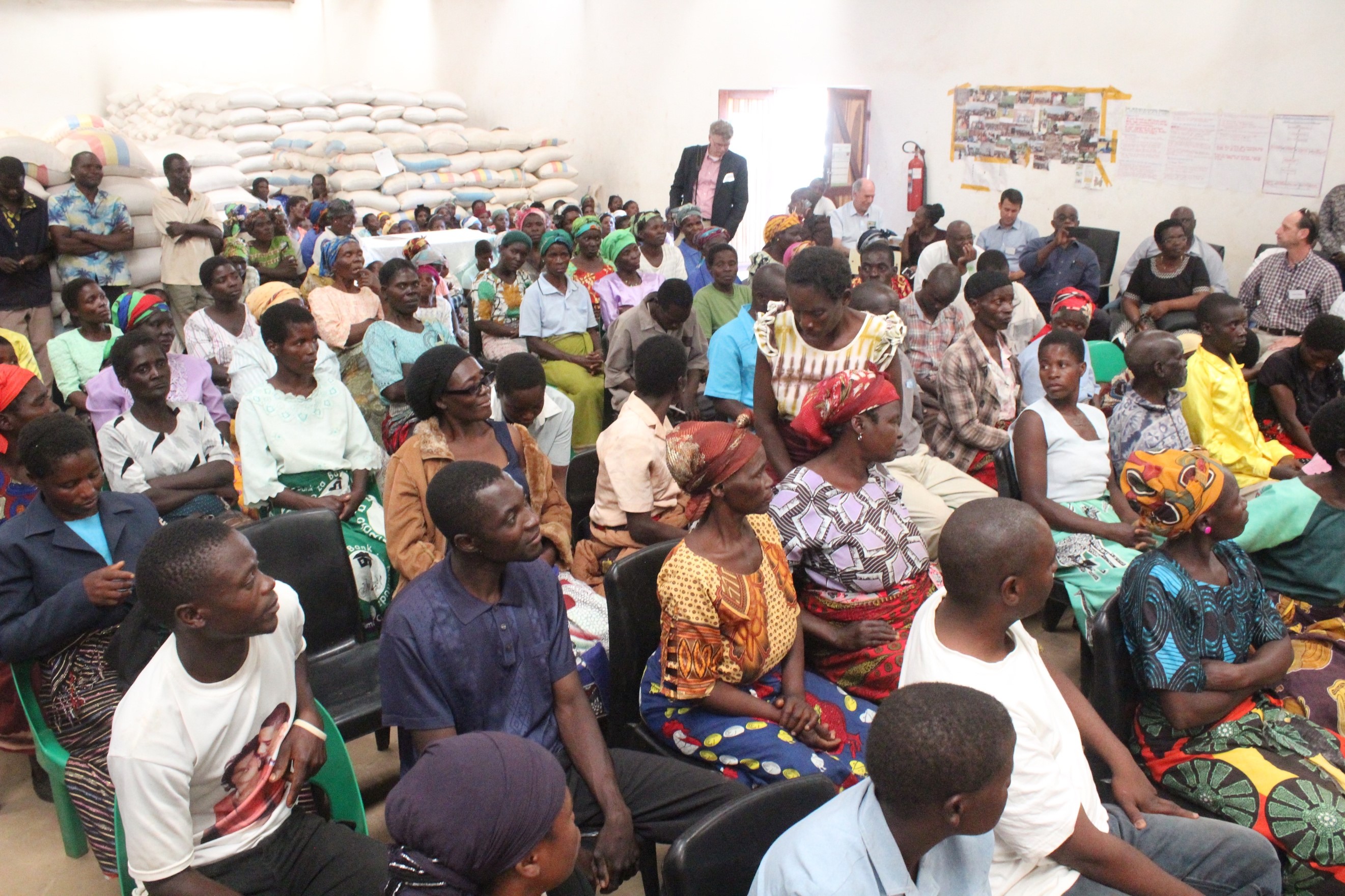
Making an impact: Avenir Technology powers Africa's Agricultural Commodities Exchange, helping small farmers in Malawi tap a bigger market.
Landlocked Malawi is ranked as one of the world's least-developed nations. Agriculture accounts for around one third of GDP and 80% of all export revenues, yet price volatility and an absence of appropriate infrastructure have left many of the nation's farmers trapped in a cycle of subsistence. Small growers are left selling to intermediate vendors at farm gate prices, which typically sit at a 15% discount to those available in the underlying market. What's more, this 'immediate settlement' means that farmers themselves can't take advantage of the notable appreciation in crop prices which is seen in the months following harvest.
To address this, the Malawi-based Agricultural Commodities Exchange (ACE), a project supported by bodies including the UN's World Food Programme, USAID, Germany's GIZ, the Flemish Development Cooperation Flanders, and the European Union, has developed a Warehouse Receipt System (WRS) to provide a central venue for facilitating more efficient commodity trading in the country. This also gives growers the ability to sell on a forward basis with the option of collateral financing also being made available to those who need it.
A complex proposition
Supporting such a complex proposition, with multiple disparate components such as buyers, sellers, assets and price points is however no easy task. Having initially managed the process on a series of relatively simple spreadsheets, in its mission to find scale, ACE then went on to appoint a team of IT developers before meeting the team from Avenir Technology. With a wealth of experience in building post-trade settlement systems for financial markets exchanges worldwide, Avenir already had a sound understanding of the necessary processes. This made for an easy transition to a robust, scalable WRS that could work within the many constraints – including cost – of a frontier market.
Kristian Schach Moller, Chief Executive Officer of ACE, commented: "Frontier markets bring unique challenges when looking to build an exchange and Malawi is certainly no exception to this. Government control of the market for maize – the dominant crop – can produce unusual pricing dynamics, the subsistence demands of many growers add to significant price distortion in the months following harvest, whilst access to technology for the vast majority of market participants is incredibly limited.
"There may be a perception that mobile phone penetration is well-developed across the African continent and that by and large is true. However, Malawi is something of an outlier here, with only around 10% of the rural farmer population owning any kind of mobile device whatsoever. This, in turn, presented its own unique set of challenges, but Avenir's flexibility and willingness to help us find a solution that delivers against the unique local need has helped support some significant growth in exchange volumes in recent years."
After Avenir, growth
Following the integration of Avenir's WRS module in 2016 and the adoption of a new Exchange model, volumes have been growing steadily and the Agricultural Commodities Exchange this year expects a record volume of commodity on the warehouse receipt system. However, participation from smaller producers remains marginal, with around 20 larger growers dominating. Limited levels of bank financing don't help when looking to encourage access, and education amongst growers remains an ongoing project. However, as volumes do continue to increase, it is expected that this will lead to yet more interest in the project and help even the most rural of farmers access the market. Millions of smallholder farmers stand to benefit from structured trade solutions as the exchange continues to mature.
The secondary market remains somewhat undeveloped, with weak price correlation between local crops and the wider benchmarks. A myriad number of influences are in play here, although better volumes in the underlying primary market will not only sustain the profitability of the exchange, they will also continue to bolster wider interest, something which in turn should extend the willingness of yet more banks to come forward with receipt financing support.
Unique challenges
Stuart Turner, co-founder of Avenir Technology, commented: "This project has presented us with several unique challenges, not least because of the limited access to technology which is available for many target market participants. That means a wholly electronic system – in line with the registry and post-trade settlement systems we typically build – wasn't an appropriate solution. However, we were able to tailor our models to meet both the demands of the exchange today whilst also ensuring that it is fit for the future as both traded volumes and connectivity increases."
Research by the African Development Bank Group published in 2018 highlighted the lucrative nature of growers being able to extract a relatively small amount of extra revenue from surplus crops, although it was also quick to acknowledge that this marginal improvement in income – maybe 20% to 30% a year – on its own wouldn't help lift the typical Malawian farmer from poverty. However, if the surplus income is used to fund diversification, maybe into growing secondary crops, buying livestock or investing in non-farm activities then the use of a WRS can be a mechanism to fund a pathway out of poverty.
Malawi matters
Stuart Turner, added: "It's hugely rewarding as a business to be involved in taking our extensive capital markets knowledge and applying it at such a grassroots level. I am convinced that our unique partnership with the team in Malawi will help continue to build on the recent success of the WRS and encourage more banks to come through with financing. However, the ACE still needs higher volumes to reach critical mass and encourage a liquid secondary market.
"Continued growth will also highlight to other WRS operators that alternative solutions are ready to be deployed. As many as 40 WRS are currently operating in Africa right now, but only a handful have any scale and Avenir's technology can help deliver that vital aspect. Capital markets are ultimately public markets, so ensuring they're accessible and delivering benefits to the widest population is vital if they are to continue delivering their purpose." 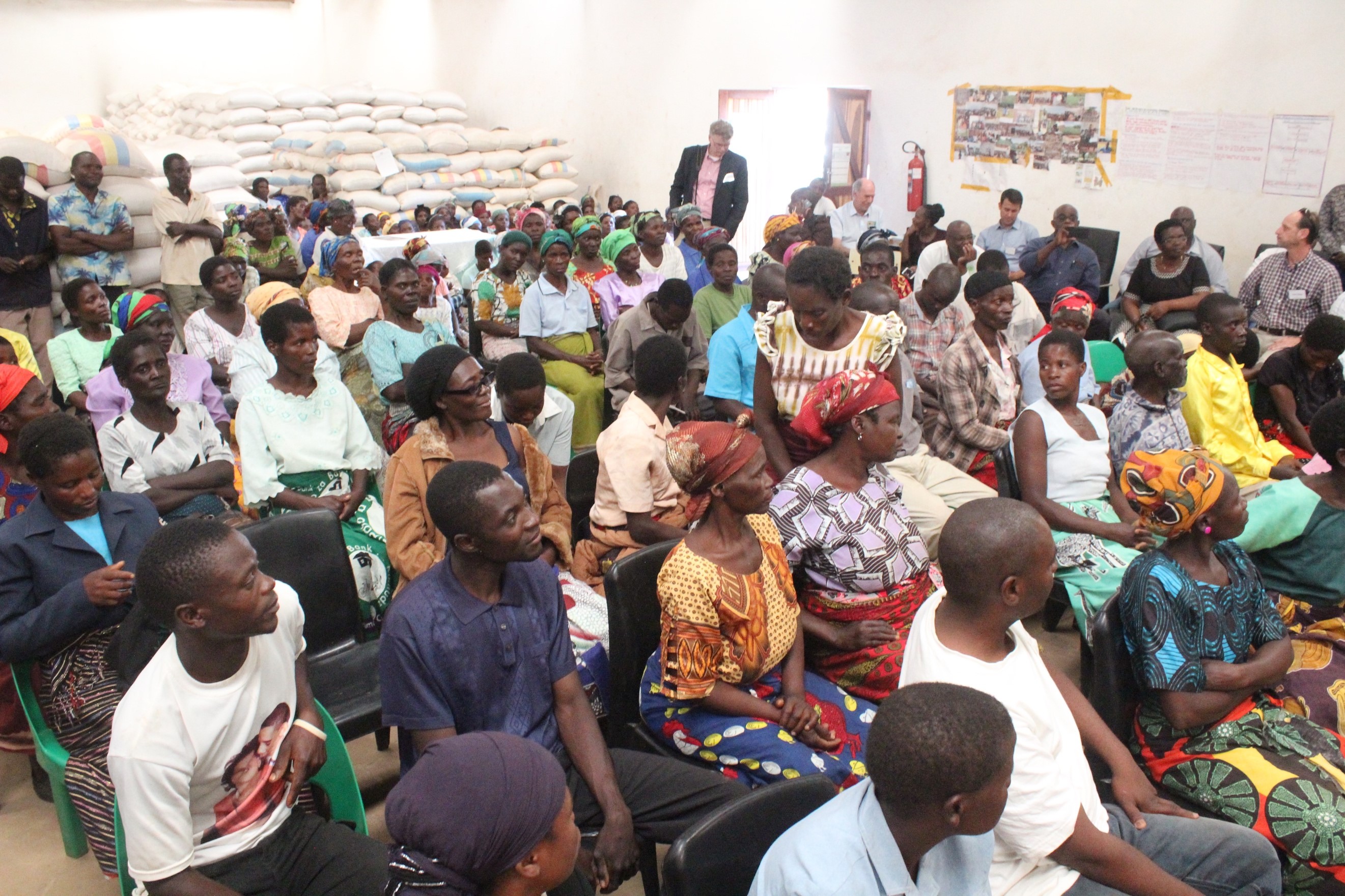
Rural Auction: farmers gathered in their warehouse to witness their soya being sold on auction on the Avenir system 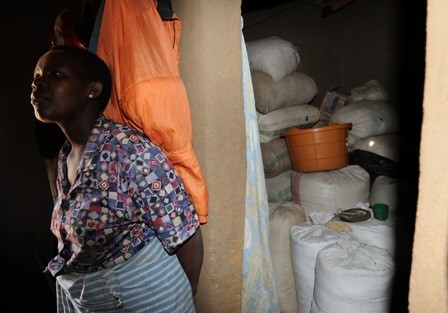
Traditional Storage: household storage in the traditional way; estimated post-harvest loss is 20%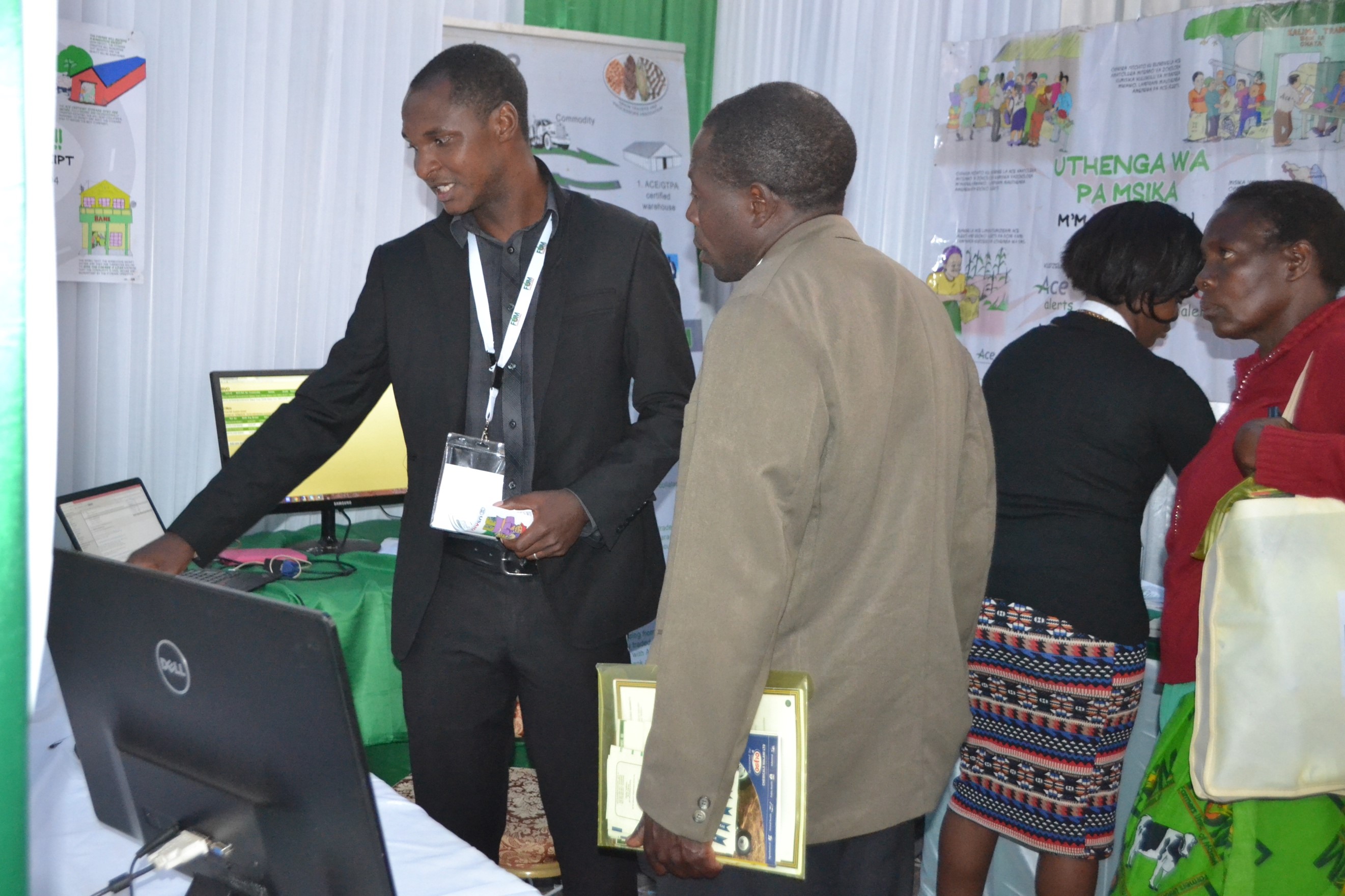
Agricultural Commodities Exchange (ACE) IT Manager displays the ACE Market Information System 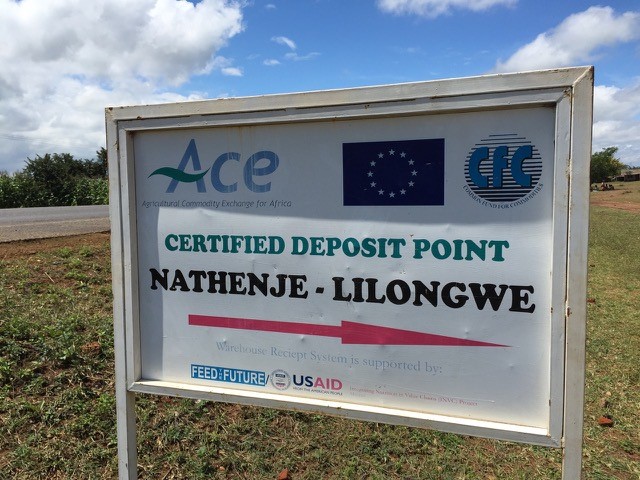
ACE-certified deposit point
Sources:
Association of Futures Markets
African Development Bank Group
Agricultural Commodities Exchange for Africa
This site, like many others, uses small files called cookies to customize your experience. Cookies appear to be blocked on this browser. Please consider allowing cookies so that you can enjoy more content across assetman.net.
How do I enable cookies in my browser?
Internet Explorer
1. Click the Tools button (or press ALT and T on the keyboard), and then click Internet Options.
2. Click the Privacy tab
3. Move the slider away from 'Block all cookies' to a setting you're comfortable with.
Firefox
1. At the top of the Firefox window, click on the Tools menu and select Options...
2. Select the Privacy panel.
3. Set Firefox will: to Use custom settings for history.
4. Make sure Accept cookies from sites is selected.
Safari Browser
1. Click Safari icon in Menu Bar
2. Click Preferences (gear icon)
3. Click Security icon
4. Accept cookies: select Radio button "only from sites I visit"
Chrome
1. Click the menu icon to the right of the address bar (looks like 3 lines)
2. Click Settings
3. Click the "Show advanced settings" tab at the bottom
4. Click the "Content settings..." button in the Privacy section
5. At the top under Cookies make sure it is set to "Allow local data to be set (recommended)"
Opera
1. Click the red O button in the upper left hand corner
2. Select Settings -> Preferences
3. Select the Advanced Tab
4. Select Cookies in the list on the left side
5. Set it to "Accept cookies" or "Accept cookies only from the sites I visit"
6. Click OK
Making an impact: Avenir Technology powers Africa's Agricultural Commodities Exchange, helping small farmers in Malawi tap a bigger market.
Landlocked Malawi is ranked as one of the world's least-developed nations. Agriculture accounts for around one third of GDP and 80% of all export revenues, yet price volatility and an absence of appropriate infrastructure have left many of the nation's farmers trapped in a cycle of subsistence. Small growers are left selling to intermediate vendors at farm gate prices, which typically sit at a 15% discount to those available in the underlying market. What's more, this 'immediate settlement' means that farmers themselves can't take advantage of the notable appreciation in crop prices which is seen in the months following harvest.
To address this, the Malawi-based Agricultural Commodities Exchange (ACE), a project supported by bodies including the UN's World Food Programme, USAID, Germany's GIZ, the Flemish Development Cooperation Flanders, and the European Union, has developed a Warehouse Receipt System (WRS) to provide a central venue for facilitating more efficient commodity trading in the country. This also gives growers the ability to sell on a forward basis with the option of collateral financing also being made available to those who need it.
A complex proposition
Supporting such a complex proposition, with multiple disparate components such as buyers, sellers, assets and price points is however no easy task. Having initially managed the process on a series of relatively simple spreadsheets, in its mission to find scale, ACE then went on to appoint a team of IT developers before meeting the team from Avenir Technology. With a wealth of experience in building post-trade settlement systems for financial markets exchanges worldwide, Avenir already had a sound understanding of the necessary processes. This made for an easy transition to a robust, scalable WRS that could work within the many constraints – including cost – of a frontier market.
Kristian Schach Moller, Chief Executive Officer of ACE, commented: "Frontier markets bring unique challenges when looking to build an exchange and Malawi is certainly no exception to this. Government control of the market for maize – the dominant crop – can produce unusual pricing dynamics, the subsistence demands of many growers add to significant price distortion in the months following harvest, whilst access to technology for the vast majority of market participants is incredibly limited.
"There may be a perception that mobile phone penetration is well-developed across the African continent and that by and large is true. However, Malawi is something of an outlier here, with only around 10% of the rural farmer population owning any kind of mobile device whatsoever. This, in turn, presented its own unique set of challenges, but Avenir's flexibility and willingness to help us find a solution that delivers against the unique local need has helped support some significant growth in exchange volumes in recent years."
After Avenir, growth
Following the integration of Avenir's WRS module in 2016 and the adoption of a new Exchange model, volumes have been growing steadily and the Agricultural Commodities Exchange this year expects a record volume of commodity on the warehouse receipt system. However, participation from smaller producers remains marginal, with around 20 larger growers dominating. Limited levels of bank financing don't help when looking to encourage access, and education amongst growers remains an ongoing project. However, as volumes do continue to increase, it is expected that this will lead to yet more interest in the project and help even the most rural of farmers access the market. Millions of smallholder farmers stand to benefit from structured trade solutions as the exchange continues to mature.
The secondary market remains somewhat undeveloped, with weak price correlation between local crops and the wider benchmarks. A myriad number of influences are in play here, although better volumes in the underlying primary market will not only sustain the profitability of the exchange, they will also continue to bolster wider interest, something which in turn should extend the willingness of yet more banks to come forward with receipt financing support.
Unique challenges
Stuart Turner, co-founder of Avenir Technology, commented: "This project has presented us with several unique challenges, not least because of the limited access to technology which is available for many target market participants. That means a wholly electronic system – in line with the registry and post-trade settlement systems we typically build – wasn't an appropriate solution. However, we were able to tailor our models to meet both the demands of the exchange today whilst also ensuring that it is fit for the future as both traded volumes and connectivity increases."
Research by the African Development Bank Group published in 2018 highlighted the lucrative nature of growers being able to extract a relatively small amount of extra revenue from surplus crops, although it was also quick to acknowledge that this marginal improvement in income – maybe 20% to 30% a year – on its own wouldn't help lift the typical Malawian farmer from poverty. However, if the surplus income is used to fund diversification, maybe into growing secondary crops, buying livestock or investing in non-farm activities then the use of a WRS can be a mechanism to fund a pathway out of poverty.
Malawi matters
Stuart Turner, added: "It's hugely rewarding as a business to be involved in taking our extensive capital markets knowledge and applying it at such a grassroots level. I am convinced that our unique partnership with the team in Malawi will help continue to build on the recent success of the WRS and encourage more banks to come through with financing. However, the ACE still needs higher volumes to reach critical mass and encourage a liquid secondary market.
"Continued growth will also highlight to other WRS operators that alternative solutions are ready to be deployed. As many as 40 WRS are currently operating in Africa right now, but only a handful have any scale and Avenir's technology can help deliver that vital aspect. Capital markets are ultimately public markets, so ensuring they're accessible and delivering benefits to the widest population is vital if they are to continue delivering their purpose." 
Rural Auction: farmers gathered in their warehouse to witness their soya being sold on auction on the Avenir system 
Traditional Storage: household storage in the traditional way; estimated post-harvest loss is 20%
Agricultural Commodities Exchange (ACE) IT Manager displays the ACE Market Information System 
ACE-certified deposit point
Sources:
Association of Futures Markets
African Development Bank Group
Agricultural Commodities Exchange for Africa
